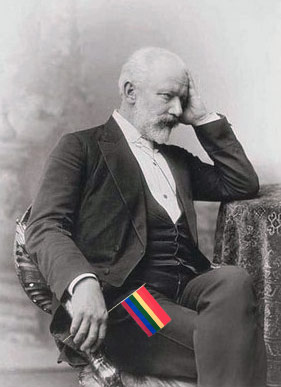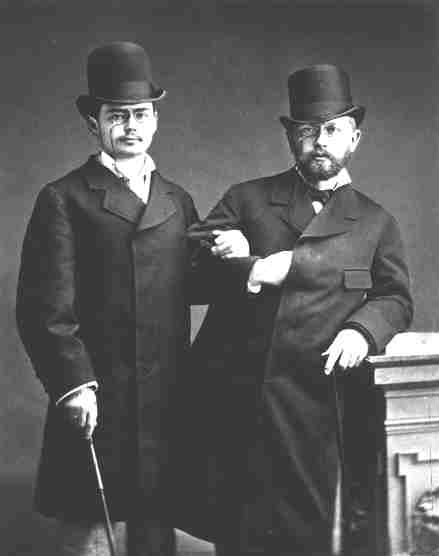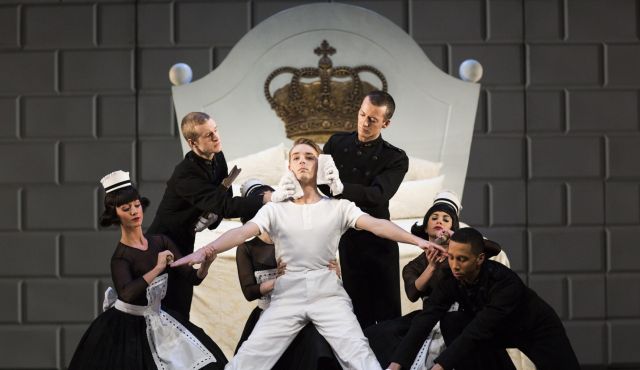
As Hamilton and the GTA ramp up for World Pride this week, we thought what better time to revisit the life of Pyotr Ilyich Tchaikovsky. The shock that homosexuality has been inherent throughout history is slowly dissipating with the help of modern history dramas that favour gay narratives, yet our society is still surprised to discover some of our most celebrated historical figures were gay. Nineteenth-century composer, Pyotr Ilyich Tchaikovsky surrounded himself with supportive friends and family members. These loved ones helped the composer navigate the social customs and sexual expectations of his era. His brother Modest, who was his openly gay, was his closest confidant and later biographer. Tchaikovsky came from a small household and desired to meet his father’s expectations. This meant confirming to the idealistic lifestyle of a prosperous young man by becoming well educated, attaining good social standing and finding a suitable wife. The School of Jurisprudence, an all-boy school, is where historians suspect the Russian composer began to realize his sexual inclinations. His classmate Aleksey Apukhtin later introduced him to the homosexual subculture of St. Petersburg society which further fostered his sexuality. He was undaunted by his sexual discoveries and believed he would have no issue leading a double life as a husband and gay lover.

While Tchaikovsky is labeled by historians as homosexual, he did fall in love with the famous opera diva Désirée Artôt. This could have been a result of his father’s unwavering expectation that Tchaikovsky should marry. The couple became engaged – but Désirée unexpectedly eloped with a Spanish baritone. Tchaikovsky was crushed. Following the failed engagement, Tchaikovsky wrote letters to Modest that he had male interests at the time, one of which was his student Eduard Zak who is thought to have been the muse behind Romeo and Juliet. His student later committed suicide after suffering a series of tragic events. Tchaikovsky expressed his love and deep loss over the young man’s death in later writings. The hope of maintaining a platonic marriage while pursuing other male lovers proved to be an impossible plan. Tchaikovsky impulsively married Antonina Milyukova, a student who wrote many passionate love letters, but began to experience almost immediate regret towards the end of the wedding day. Within weeks, Tchaikovsky attempted to drown himself in the Moscow River and two months after the wedding, left his wife and withdrew to St. Petersburg. He wrote to his brother Anatoly that “there is nothing more futile than wanting to be anything other than what I am by nature.” However, this forced social conformation enhanced rather than hindered Tchaikovsky’s artistic achievements. During his recovery period in Switzerland following the disastrous marriage, he produced his Fourth Symphony and the opera Eugene Onegin –two of his most beloved works.

After this period, Tchaikovsky avoided the company of women and began a discreet relationship with his servant Alyosha Sofronov as well as on and off relationships with other men, such as violinist Iosif Kotek. There is much debate with regards to the composer’s relationship with his nephew Bob Davydov and the depths of intimacy they shared. Yet, novelist E.M. Forster wrote in his love story Maurice that “Tchaikovsky had fallen in love with his own nephew, and dedicated his masterpiece [Symphonie Pathetique] to him.” Sidenote: You can hear this symphony performed by the HPO in January 2015. The composer remained withdrawn from Russian society and traveled through Europe, hardly staying in one place for more than a few months, until his death. Tchaikovsky’s life story remains inspiring in the orchestral world and the LGBTQ community. In fact, Matthew Bourne addresses issues in relation to contemporary society through his modern version of Swan Lake in Tel Aviv. Check out a clip of the production here: http://www.youtube.com/watch?v=y_n-VIwgXC4